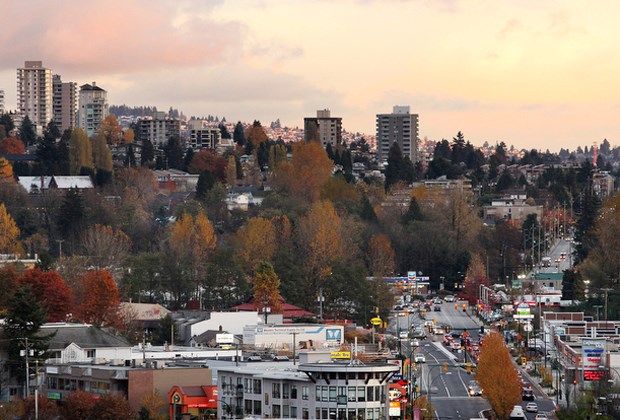The phones are ringing. It could be the future calling.
The District of North Vancouver has begun carrying out a survey of residents, both in the district and the City of North Vancouver, to gauge their interest in a possible reunification of the two municipalities back into one.
Between April 23 and May 1, the firm will be contacting people’s land lines and cell phones to get a sample of 600 respondents that match the demographics of North Vancouver revealed by the last census.
The survey asks eight questions.
“None of them are ‘Do you think we should amalgamate?’ because that’s not what this was about,” said Mairi Welman, manager of strategic communications for the district. “It’s all around do people see themselves as distinct in the city in the district? Or do they themselves as just being from North Vancouver?”
The district is carrying out the survey to see if there is a strong enough mandate from the public to persuade the always-reluctant City of North Vancouver council to open their books and participate in a formal, detailed study.
City Mayor Darrell Mussatto has long held the position that city residents would wind up with higher taxes post-amalgamation and that it would be better to simply pursue more shared services.
“I want to make sure that if we are going to do this amalgamation that we actually benefit from it, not subsidize,” Mussatto said at the April 16 council meeting.
In 2017, district homeowners payed a lower tax rate than city ones but utility costs are higher in the district.
One of the final questions on the survey script is “Do you think the city and the district should jointly investigate the true costs and benefits of amalgamation?”
“Hopefully, when people hear the phone ring and they find out that it’s this survey, they will participate because we really do want to hear what people think about it. We don’t want to proceed on assumptions,” Welman said.
District staff have already produced a high-level report that may poke holes in some of those assumptions about amalgamation, namely that that would result in lower taxes or more efficient public services.
“When transition costs are included, realizing cost efficiencies from a municipal amalgamation is almost impossible, and particularly so for a local government with DNV’s characteristics. Preliminary evidence suggests that currently the city and district succeed in efficiently delivering services, with little overlap of consequence and few economies of scale to be gained from a merger,” the report stated.
The real gains, the preliminary analysis found, would be in seizing the missed opportunities that stem from having two local governments, particularly when it comes to gaps in the two North Vancouvers’ urban planning and transportation policies.
“Though the quality of services is high, consolidation would improve the effectiveness of the government in a number of areas, foremost among them being planning and transportation,” the report states. “A unified North Vancouver, for instance, may have a comprehensive cross-municipal transportation network along the waterfront; in the current situation this would require a degree of cooperation and coordination that is not realistic, or at the very least unlikely. Having distinct political entities also results in a default setting of inaction on joint issues.”
In 1907, land owners successfully petitioned the province to carve a new municipality with the current boundaries out of the larger district.
The last time there was a formal referendum on amalgamation was 50 years ago this fall. It was supported by 90 per cent of district voters.
In the city, voters were 2284 in favour and 2283 against, although the one-vote majority was short of the 60 per cent threshold the province required at the time.
The district is paying roughly $22,750. For the survey and advertising costs. The results are expected back at district council in May.
To read the District of North Vancouver's high-level report on reunification, click on the panel below.



